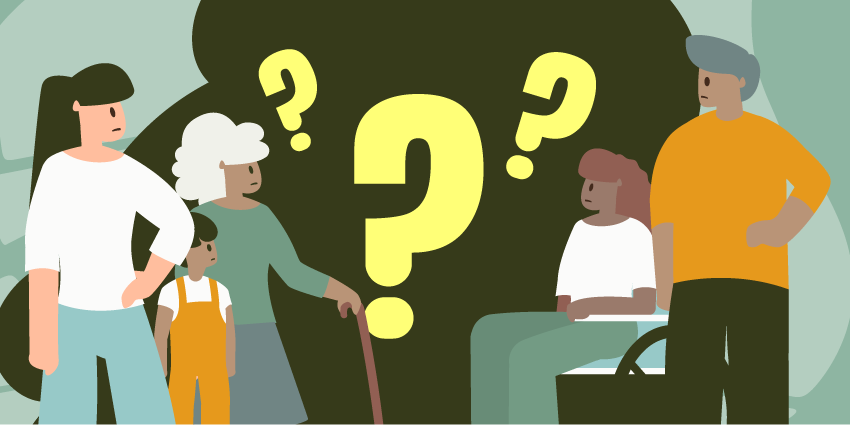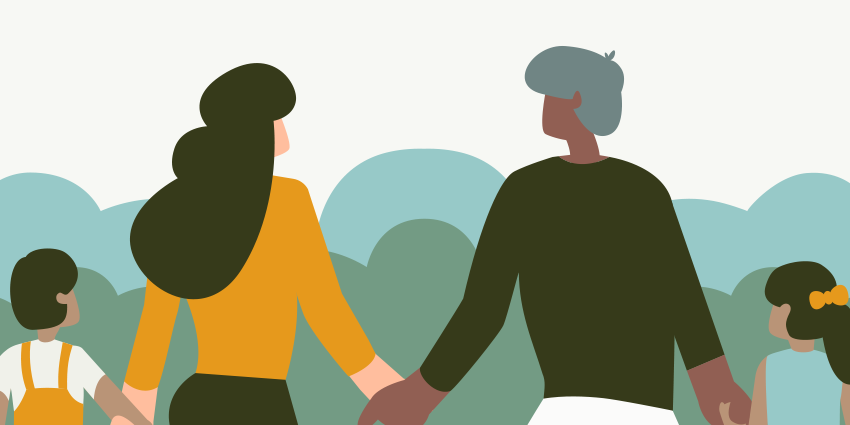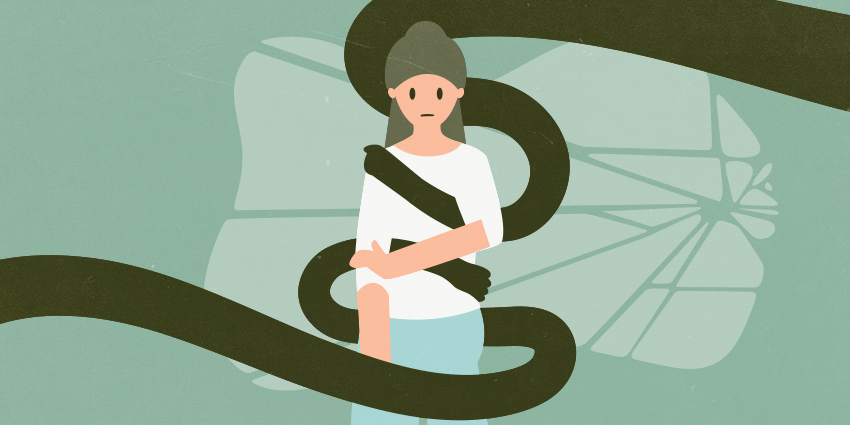To find services or supports you are comfortable with, please visit the helplines and support services page – use a friend’s phone if you think yours is being monitored.
Taking responsibility and asking for support are the first steps towards change. There are people and resources available to support you to do that.
Family and domestic violence doesn’t have to be physical
Using coercive control is family and domestic violence. It can seriously harm someone’s mental and physical health, and impact their employment, relationships with friends or family, and sense of autonomy.
Below are some examples:
- Isolating: controlling who they can see and talk to or undermining their relationships with others. Taking away their independence by stopping a partner from working or having their own financial independence.
- Controlling: controlling a persons’ independence, freedom and their ability to make decisions using their own free will, without fear of consequences.
- Intimidating behaviour: behaving in a way that makes a person feel fear, or believe there will be a consequence if they don’t do what you want.
- Breaking or hitting things: damaging property or personal items, hitting doors or walls.
- Harassment or tracking: sending lots of texts or calls, going through their phone or private messages, or tracking them without their knowledge or consent.
- Verbal abuse: using words to hurt them; this could include shaming and belittling them, extreme criticism, or telling them they’ll never find anyone else.
You might justify your behaviour by:
- Making excuses: “I was really stressed out”, “It’s not my fault” or “I’m under a lot of pressure at the moment.”
- Denying it: “Nothing happened”, "It wasn’t abuse."
- Minimising impact: “I didn’t really hurt them”, “Can’t they take a joke?”
- Justification: “I’m not controlling them, I care and want to keep them safe” or “I know what’s best for them.”
- Not taking responsibility: “They made me angry”, “I’d had too much to drink."
- Avoidance: “I was angry and couldn’t control my actions.”
- Apologising but not changing the behaviour: 'love bombing' or giving gifts or profuse apologies to try to excuse the behaviour.
If you can relate to any of these behaviours, taking responsibility and making the decision to change your behaviour is important, and there are supports available to help you. It is important to understand these behaviours and their impact on others.
Why making a change is important
Violent and controlling behaviour can have devastating effects on your children, partner and family, impacting the wellbeing of those you care about.
Taking responsibility and working towards safer and more respectful behaviours, are the first steps in supporting the health, mental wellbeing and stability of your family. It is also crucial for setting a positive example for the next generation, including your children, to make sure that they don’t grow up to use or experience violence.
Taking responsibility for your choices
Abuse and violence is never ok, and everyone has the ability to choose how they act, behave and treat other people.
Take the first steps by:
- Acknowledging it: the first and most crucial step is recognising and understanding that your behaviour is harmful, and deciding that you want to change.
- Take a step back: when things start escalating, you can avoid abusive actions by stepping back and using effective strategies to calm yourself and manage difficult emotions.
- Talk to someone you trust: share your concerns with a mate or family member can be a powerful step toward accountability and support.
- Seek professional help: reach out to a counsellor or support service that specialise in family and domestic violence. They can help you develop strategies to change.
- Stop making excuses: everyone makes choices about how they act, even if they don’t realise it. Saying you lost control because you drank too much or were provoked is a way to avoid taking responsibility for being controlling or violent.
- Commit to change: changing your behaviour will take time, effort and perseverance. Remember to stay committed to improving yourself, even when it’s challenging.
- Learn about healthy relationships: educate yourself about what respectful relationships looks like, including how to communicate effectively, treating each other with respect, and handling conflicts calmly.
Learning how to do this is easier with help and support. Making changes alone can be tough, but having someone to help makes it better. The links below can connect you to services that offer support.
Help and support
Often people who use violence at home are men. If you're a man using violence and hurting your family or partner, there are services available to help you change. These programs and services can teach new ways to be with family and friends.
- Men’s Domestic Violence Hotline: this service offers phone information and referrals for men worried about their violent and abusive behaviours and for male victims of family and domestic violence in Western Australia. Phone: 1800 000 599. *This helpline is operated by Department of Communities, and your call will be answered by a child protection worker. We are here to help.
- 1800RESPECT: this is a national phone and online counselling and referral service. Phone: 1800 737 732.
- Men’s Referral Service: a telephone counselling, information and referral service for men using, or at risk of using, violent or controlling behaviour. Phone: 1300 766 491.
- MensLine Australia: this service provides 24/7 support for men and boys facing family and relationship challenges. It also helps men who are worried that their behaviour is hurting their loved ones. Phone: 1300 789 978.
Find more support services and helplines here:
Family and domestic violence support services and resources






